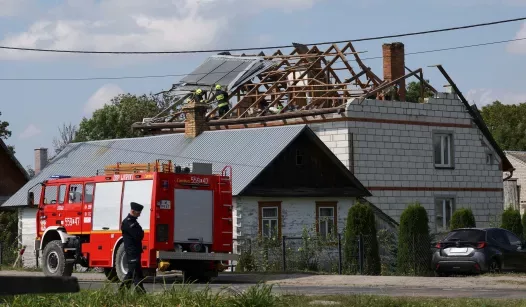Recent drone incursions by Russia over Poland have raised significant concerns about the security and stability of NATO member states. These actions not only test the alliance’s commitment to collective defense but also signal a potentially dangerous escalation in Eastern European tensions. As NATO grapples with its response, it is crucial for the alliance and its member countries to assert their strength and unity in the face of aggression.
The implications of these drone incursions extend beyond Poland’s borders, as they challenge the credibility of NATO as a defensive organization. If Russia perceives NATO as weak or indecisive, it may embolden further provocations, threatening the security of not just Eastern Europe, but the entire transatlantic alliance. Therefore, it is imperative that NATO members, particularly the United States, take a firm stance to deter such aggressive behavior.
In recent years, the geopolitical landscape has shifted dramatically, with Russia’s actions in Ukraine and its military maneuvers in the Baltic region underscoring a clear pattern of expansionism. The use of drones in incursions over Poland is a strategic move that requires a robust and coordinated response from NATO. This situation serves as a reminder of the necessity for member states to reaffirm their commitment to mutual defense and the principles that underpin the alliance.
The United States, as a leading member of NATO, has a critical role to play in shaping the alliance’s response. Engaging in diplomatic discussions, enhancing military readiness, and conducting joint exercises with European allies are all essential steps to demonstrate solidarity and resolve. Additionally, the U.S. must work to strengthen its partnerships with Eastern European nations that feel threatened by Russian aggression, ensuring they have the support and resources needed to defend their sovereignty.
Moreover, a measured yet assertive response to these incursions can help to reassure not only NATO members but also the broader international community that aggression will not go unchecked. This is particularly important as global perceptions of NATO’s effectiveness can influence the behavior of other nations and non-state actors. A strong response sends a clear message that NATO is committed to maintaining peace and stability in Europe.
As the situation continues to develop, it is vital for political leaders and policymakers to engage in open dialogue about the best course of action. This includes considering economic sanctions, increased military presence in Eastern Europe, and enhanced intelligence-sharing among member states. Such measures can serve as both a deterrent against further incursions and a signal of NATO’s unwavering commitment to its principles.
In conclusion, Russia’s drone incursions over Poland present a significant challenge to NATO and its member states. It is essential for the alliance to respond decisively and cohesively to reaffirm its commitment to collective defense. By doing so, NATO can not only protect its members but also uphold the principles of international law and order that are vital for global stability. The time for action is now, as the stakes are high, and the consequences of inaction could be dire.
